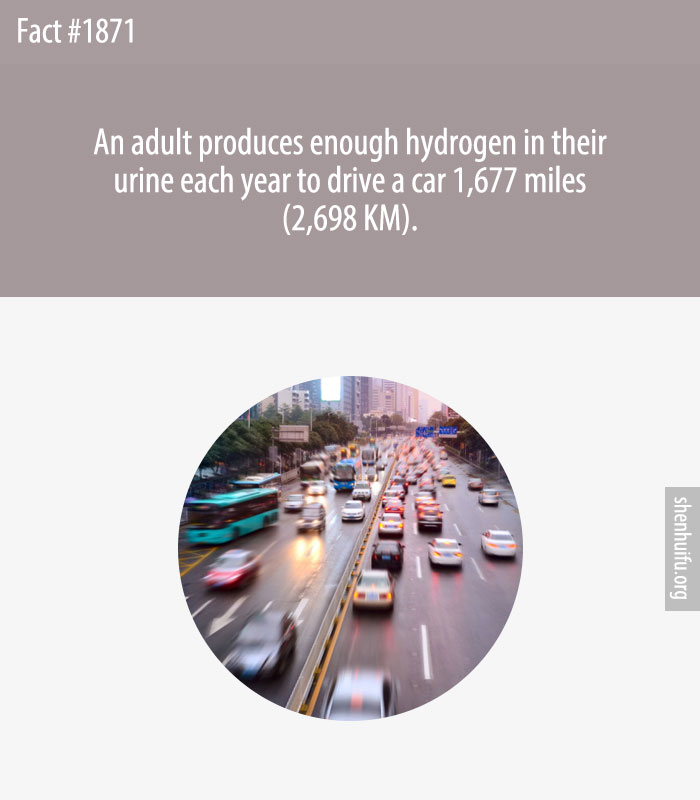
An adult produces enough hydrogen in their urine each year to drive a car 1,677 miles (2,698 KM).
The volume of filtrate formed by both kidneys per minute is termed the glomerular filtration rate (GFR). The heart pumps about 5 L blood per min under resting conditions. Approximately 20 percent or one liter enters the kidneys to be filtered. On average, this liter results in the production of about 125 mL/min filtrate produced in men (range of 90 to 140 mL/min) and 105 mL/min filtrate produced in women (range of 80 to 125 mL/min). This amount equates to a volume of about 180 L/day in men and 150 L/day in women. Ninety-nine percent of this filtrate is returned to the circulation by reabsorption so that only about 1–2 liters of urine are produced per day.
One liter of urine can produce enough hydrogen gas to run an electrical generator for 6 hours. (A gasoline-fueled generator needs about 7 liters of that fuel to run for the same length of time.)
